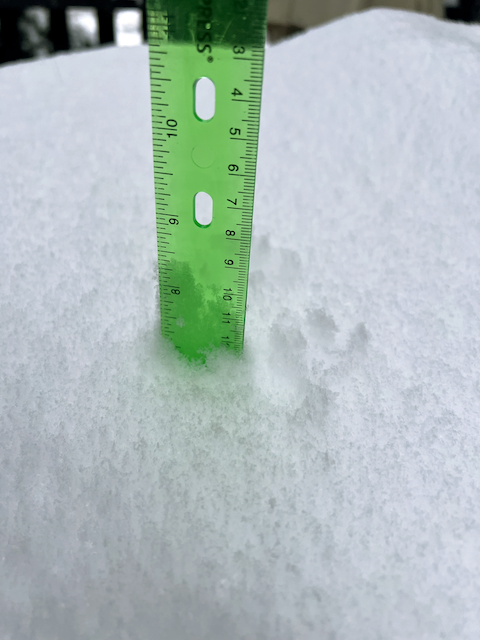By Reese Bunch

Tyler Childers’ new album, Snipe Hunter, is a unique and interesting walk through Appalachian history, the struggles of modern life, and religious faith. Set to a soundtrack paying homage to gospel, folk, and bluegrass music, Childers’ lyrics touch on themes of life, death, life under capitalism, guilt, and even a touch of Hinduism through the lens of a man who was born in rural Appalachia.
While I truly believe the best way to experience this album is to sit down, put on your best headphones, and listen from start to finish, I know that is not often feasible with our busy lives. With that said, the following songs are, in my opinion, the five best tracks on the album in no particular order.
“Poachers”
An interesting topic to write a song about in the year 2025, as poaching is often associated with medieval times and killing the king’s game; not exactly an activity that would be expected of people to participate in modern America. As unlikely as it may seem, poaching is still alive and well in today’s time, even if it isn’t often as scandalous as it may seem. More often than not, it is simply people hunting without a license, not people hunting endangered species.
While the lyrics of the song speak to being caught poaching, along with the associated jail time and shame, it also speaks to something more. While laws should be followed to the best of one’s ability, the song brings up an interesting question. With lyrics like “How long do I have to call it in and be legal / Or is it sufficient if I honor my tags?” Childers asks if it is more important to follow the letter of the law or to honor the spirit of the law in personal life. While he is hunting legally, he has not reported his kill to the state of Kentucky, which is a crime. Something being written into law doesn’t make it moral; it simply makes it law. This is something Appalachians have had a deep relationship with since the Europeans colonized Appalachia; it seems that debate is alive in well in the hills today.
“Watch Out.”
While not as existential as some other songs off this album, it is just as good a listen. Childers is able to evoke memories of being a child running and playing in the woods, feeling like an explorer on the edge of discovery without a care in the world. This concept is overlaid with warnings of the real danger that is present in the woods and wilderness; lines like “Watch out where you reach / You could come back penny-in-handed” are a very real warning about copperheads and wildlife. While relaxing and tranquil, the forest can be full of danger if one is careless or uneducated, which can be extrapolated to life in general as well. Life is exciting and fun, but not something to be taken lightly, and this track serves as an important reminder of that fact.
“Tirtha Yarta”
This is possibly the most surprising and interesting track on the album, blending progressive rock, folk music, bluegrass, and traditional Indian music into a beautiful and winding melody. The lyrics reference Hindu scripture, Indian landmarks, and culture, which are vastly different from Childers’ own, and they are presented in a respectful, almost reverent manner. He may be a “cousin lovin’ clubfoot somethin’ somethin’ / Backwood searcher” but it is admirable that he opened himself and his faith up to reading the Bhagavad Gita and writing a beautiful song about his experience. This album, and specifically this song, could potentially be the first lines in a new chapter in experimental, exploratory, and self-reflective country music.
“Dirty Ought Trill”
In a TikTok video posted by Childers, Rick Rubin, the producer of Snipe Hunter, said to him that “This was his [Tyler’s] first dance album.” No song embodies that like “Dirty Ought Trill,” which pulls heavily from classic rock while still including themes from folk music and hymnals. The beauty of the track is the blending of these and other genres, culminating in a catchy and rather energetic song. While it is easy to focus on the catchy riffs and melodies, the lyrics are where the real magic happens.
Childers sings of a man known around the holler who goes by “Dirty Ought Trill,” named for his hunting rifle of choice, the thirty-ought-six. While this song is definitely one to get your toes tapping and the blood flowing, it still brings to light the lives and hobbies of many hunters and Appalachians. While this list is in no particular order, this is the song that has been the most played for me personally.
“Eatin’ Big Time”
No list, review, or analysis would be complete without bringing up the first song of the album. “Eatin’ Big Time” is potentially the most controversial song on the album, and not for its music, but rather its lyrics. On the surface, the song seems to be a bit of a flex on the part of Tyler Childers since he has found commercial success with his musical career. Part of this song is definitely him showing off, considering the line “Keep my time on my Wiess / Ya goddamn right I’m flexin’ / ‘Cause a thousand dollar watch is fine enough flex for me.”
While this may not be the most humble song of his, Tyler Childers still wraps in class consciousness as well as support for social safety nets. The title of the song shortens to E.B.T., which is the same acronym as the program that food benefits are paid out with in a nod to his lower-class upbringing, an upbringing he seems to have not forgotten. Lines such as “I had shot it from a blind, as in you’d be blind not to see / That there’s a man in the doorway of a motherfuckin’ mansion” allude to the fact that it is not a personal failing if one is not well off financially; it’s simply a symptom of the society we are all a part of. In addition to its political messaging, the song is a treat to listen to and is likely to be remembered as a classic.
Regardless of personal taste in music, Snipe Hunter and Tyler Childers, in general, are worth a listen. In a world full of commercial pop country, standing out and creating unique listening experiences should be celebrated. Folk and bluegrass are American traditions that are at risk of being forgotten and left behind for more “commercially successful” music, so as fans of music, we should do our best to support more independent artists. Snipe Hunter is a perfect start to discovering new and interesting music styles.






